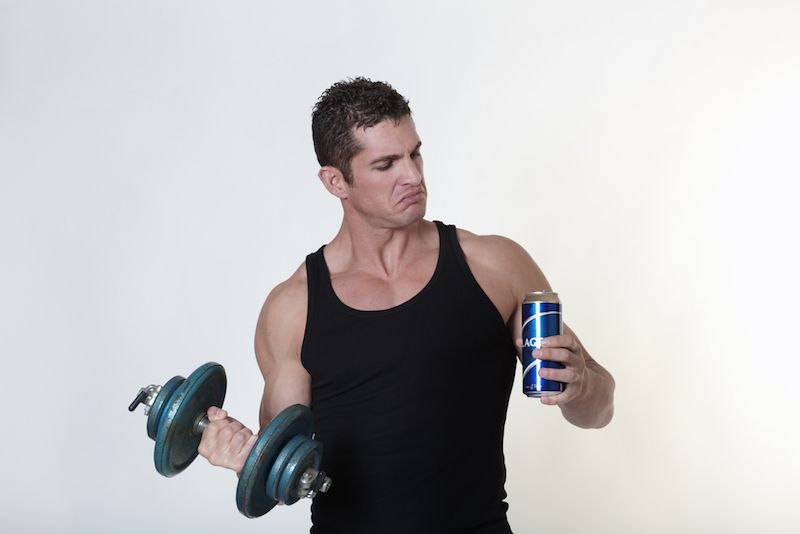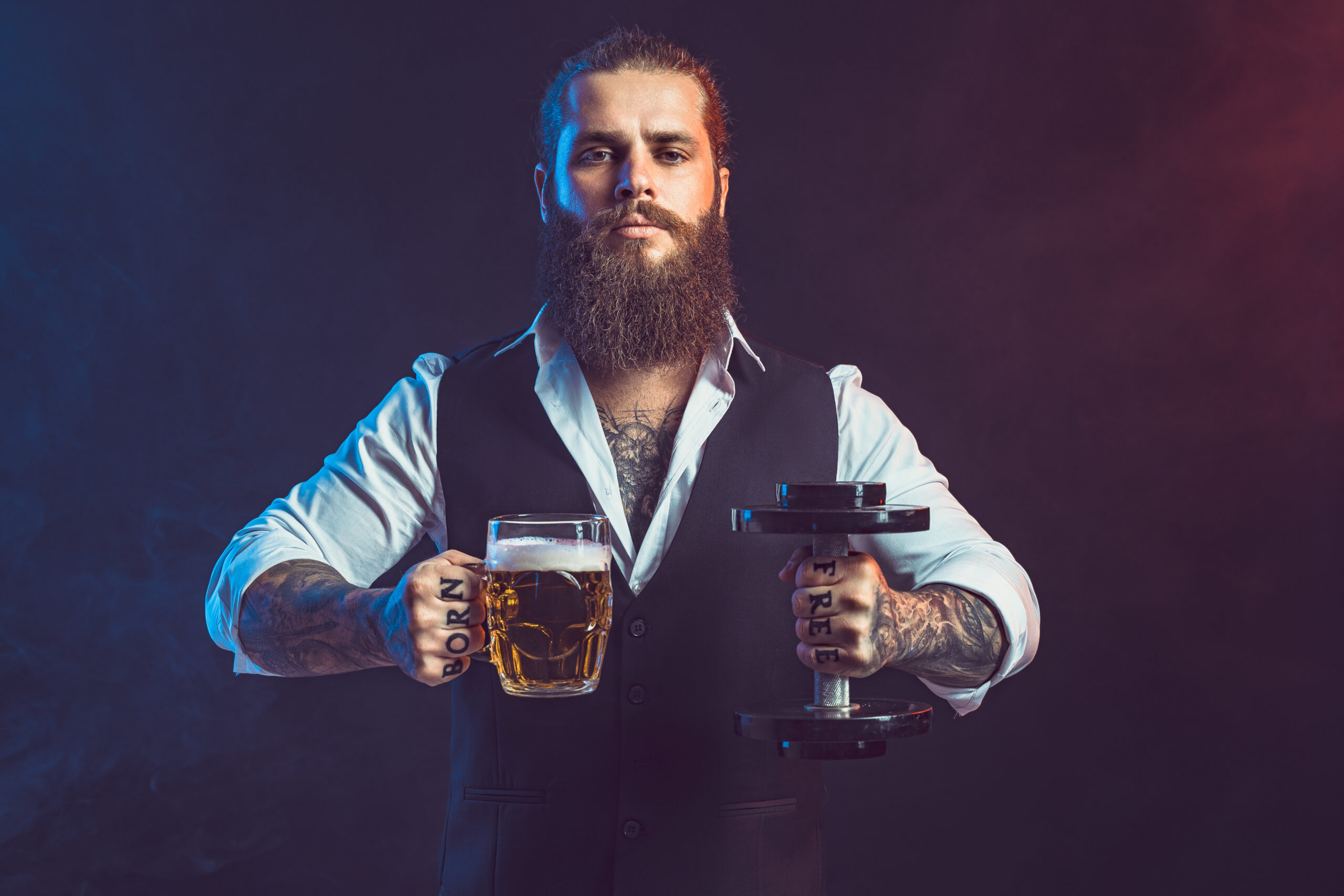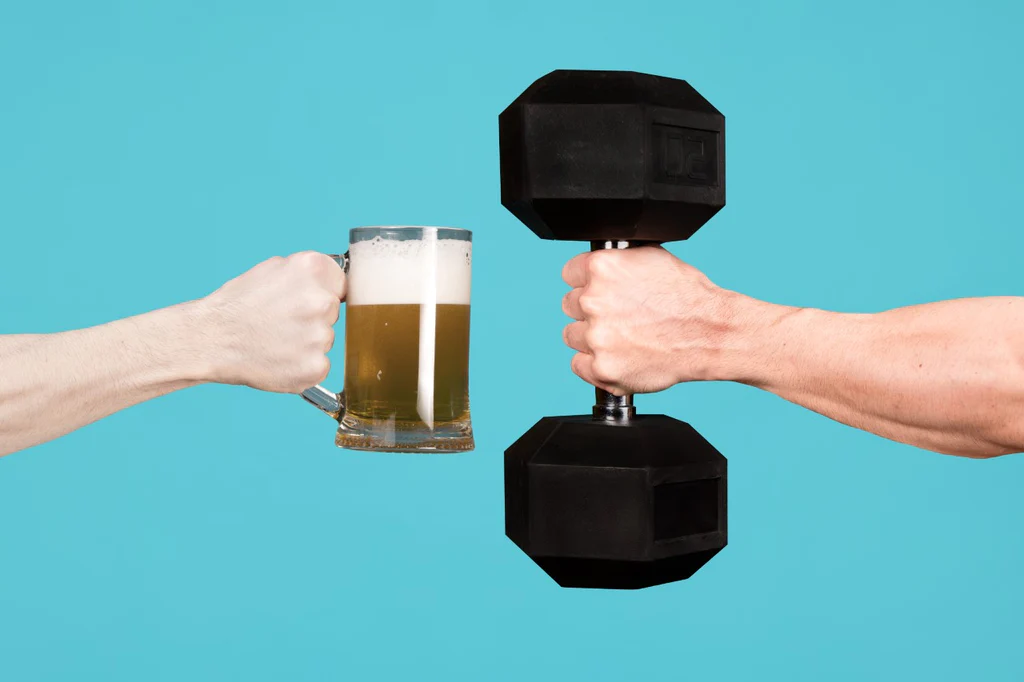For most fitness freaks and bodybuilders, maintaining a strict exercise routine and diet is crucial to achieving their desired physique.
While some believe consuming Alcohol can negatively impact their muscle gains and overall performance, others argue that moderate alcohol drinking may not have a considerable effect. Thus, the answer to whether or not Alcohol kills fitness and bodybuilding gains is not straightforward and differs based on various factors.
This article explores the effects of alcohol consumption on body composition, muscle growth, and recovery and ways to incorporate it into your diet to minimize the potential adverse effects.
Table of Contents
Toggle9 Ways Drinking Impacts Your Workout

To understand the impact of Alcohol on your workout, you need to look at how it impacts the different aspects of your workout.
1. Alcohol and Muscle Recovery
Your body requires protein and carbs to recover from exercise. When you consume Alcohol after a workout, it reduces the rate of muscle protein synthesis. It negatively impacts muscle recovery, growth, and exercise adaptation, particularly after resistance training and HIIT workouts. Such a repressing effect on protein synthesis is proportional to how much you drink.
2. Alcohol and Hydration
Protein synthesis needs water to transport nutrients to the muscles. Inadequate hydration impairs this process. Thus, proper hydration is critical when it comes to strength gains.
As Alcohol is a diuretic, its consumption can lead to dehydration. Drinking alcoholic beverages causes you to lose much more water than you gain by drinking and hinder protein synthesis in the body.
3. Alcohol and Fat Reduction
Your body sees Alcohol as a toxin (not a nutrient) and metabolizes it differently than real food. It doesn’t store Alcohol, like how it stores excess calories as fat.
When you consume Alcohol, the body’s main priority is to remove toxic waste formed by Alcohol than to burn stored food calories. This action slows down the natural metabolism of fat stores and causes less fat burn in the body.
4. Alcohol and Weight Gain
Alcohol has zero nutritional value and only provides any nutrients but calories to the body. Alcohol or sugar-loaded alcoholic beverages containing additives and mixers are packed with calories. The number of calories you accumulate depends on how much you drink. When these calories aren’t metabolized, they get stored as fat, leading to weight gain.
5. Alcohol and Muscle Growth
As we have discussed, Alcohol gets metabolized before other nutrients and blocks other nutrients from being absorbed. This way, it affects muscle protein synthesis despite consuming optimal nutrition. In turn, disruption in muscle protein synthesis leads to impaired muscle growth.
6. Alcohol and Sleep
Sleep is essential for muscle recovery and tissue repair. It is when your muscle tissue grows, repairs, and strengthens. A peaceful sleep also impacts testosterone levels and muscle building.
Alcohol is a depressant that may help us go to sleep but make it difficult to stay asleep. It may make you feel relaxed but adversely affects your sleep. Poor quality sleep doesn’t let you function at optimum levels.
7. Alcohol and Nutrition
You need adequate nutrients to develop and maintain muscle mass and work at optimal fitness levels. Alcohol lacks nutritional value and slower nutrient absorption by reducing digestive enzymes.
Excessive drinking may damage digestive tract cells and prevent the absorption of adequate protein and other nutrients. The result is that even after eating healthy food, your body cannot utilize it for its benefit.
8. Alcohol and Hormones
Binge drinking can disrupt the endocrine system and alter your hormone levels considerably. Such disruptions can elevate stress levels and hormonal irregularities, hurting an individual’s health.
9. Alcohol and Fitness
Looking at the impact of Alcohol on muscle growth, fat loss, sleep, nutrition, and hormones, it is pretty clear that it doesn’t positively contribute to overall fitness levels. However, the extent to which Alcohol can impact you depends on how much and how frequently you consume it.
Casual or light drinkers who enjoy a few beers or a glass of wine occasionally do not have to worry much about the Alcohol’s side effects on their muscle-building or fat-loss objectives. Ensure you track the calories consumed while drinking, and you will be fine.
Heavy Drinkers (more than two drinks a day for men and one drink per day for women) should exercise caution as higher alcohol intake would obstruct their progress in pure muscle building or fat burning. By limiting your alcohol intake, you can meet your fitness goals without giving up your favorite brunch beverage.
Tips To Drink Without Harming Your Progress

Having considered the ill effects of Alcohol on different aspects of fitness, here is a practical guideline you should follow to minimize the damage.
- Choose lower-calorie drinks like finer dry wines and spirits mixed with zero or low-calorie liquids. Pay careful attention to their ingredients and exercise portion control.
- Increase the time gap between your strength training session and alcohol consumption. Waiting for at least an hour or two after your workout, you may not want alcoholic beverages. This would help reduce your urge to drink Alcohol and save you from its adverse effects.
Also, avoid training on the same day and the next day after you have drunk heavily. It would prevent a negative impact on your muscle recovery from a previous workout, and your performance on an upcoming exercise would remain unaffected.
- Consume low-fat foods on drinking days. It is because acetate (the toxic element of Alcohol) constrains the fat-burning process in the body when consumed, and the fat in the bloodstream gets quickly absorbed any time you drink.
- As Alcohol is extremely dehydrating, drink a lot of water before, during, and after consuming Alcohol to stay hydrated. It will help minimize any potential hangover and allow faster recovery from your night out.
- Never Substitute Alcohol for sleep. Whether you have to get up early for work or a significant training session the next day, take a full day’s rest, and don’t sacrifice your sleep for drinking.
- Don’t drink daily. It is okay to enjoy yourself with your buddies once in a while. However, if you do it often, your life could become unmanageable.
Conclusion
Just because you build muscle and lose fat doesn’t imply you can’t enjoy some drinks occasionally. Casual drinking (1-2 drinks per day) is nothing to worry about. Consuming Alcohol moderately and responsibly can help minimize its harmful effects.

I am a passionate beer connoisseur with a deep appreciation for the art and science of brewing. With years of experience tasting and evaluating various beers, I love to share my opinions and insights with others and I am always eager to engage in lively discussions about my favorite beverage.
















